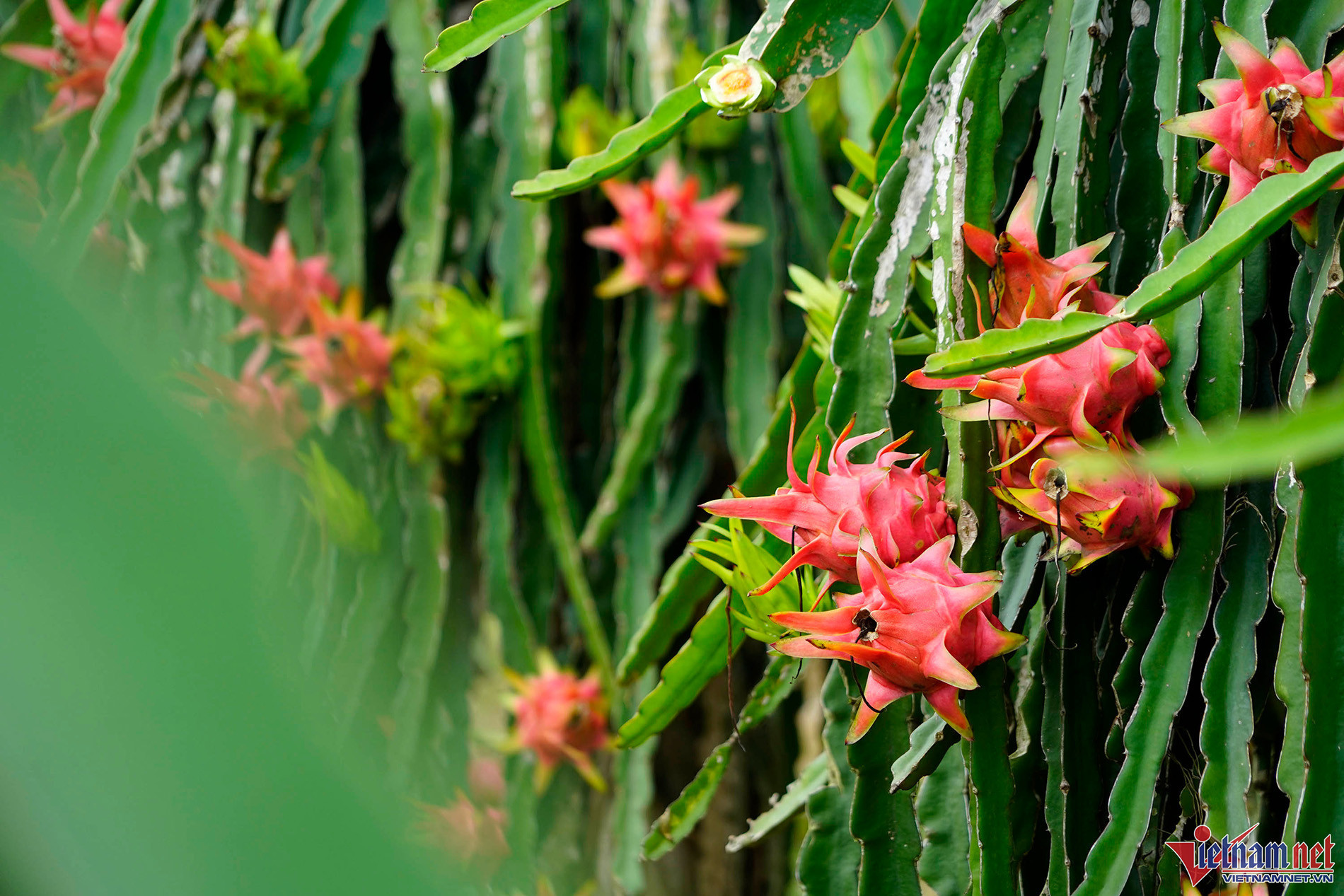
On the occasion of the recent State visit to Vietnam by Chinese General Secretary and President Xi Jinping, the Vietnam-China Joint Statement was released, which said China would open its market to many Vietnam’s farm produce, including fresh coconut, frozen fruits and citrus fruits, and animal meat, while Vietnam would increase the imports of sturgeon from China.
The two countries have also agreed on expanding the two-way trade and applying the measures to ensure the smooth circulation of goods, trying the smart border gate model at some border gates to increase the customs clearance capacity.
According to Trung, China is a large and important export market for Vietnam. 95 percent of Vietnam’s durian are exported to China. The figures are 90 percent for cassava, litchi 90 percent and dragon fruit 80 percent.
In new conditions, there would be new opportunities and challenges in farm produce trade between Vietnam and China which need to be dealt with new solutions.
Regarding opportunities, Trung mentioned three keywords ‘clement weather’, ‘favorable terrain’ and ‘concord among people’
‘Clement weather’ means that the Vietnam-China relations are in good development period, especially after the Vietnamese Party Chief Nguyen Phu Trong to China in October 2022 and Chinese Party Chief Xi Jinping to Vietnam some days ago.
Both Vietnam and China are members of the ASEAN-China Free Trade Agreement (ACFTA) and the Regional Comprehensive Economic Partnership (RCEP). Vietnam can enjoy preferential tariffs as a signatory of the agreements.
After the Covid-19 pandemic, China’s economy has been facing some difficulties and one of its priority tasks is accelerating people’s spending, which, according to Trung, brings great opportunities to Vietnam’s farm produce.
Chinese middle income earners now account for a relatively large proportion in Chinese society and they are the consumers Vietnam’s farm produce target.
China attaches much importance to the Vietnamese market with 100 million consumers.
During the talks of the two countries, the two Party Chiefs affirmed that the two countries attach much importance to exporting farm produce to each other country. China also wants to export more high-quality fruits to Vietnam, therefore Vietnam has its certain advantages in negotiations with China on farm produce exchange.
In term of ‘favorable terrain’, the short geographical distance between the two countries makes it very easy to carry goods to targeted markets.
Thailand is a rival for Vietnam in the Chinese market, but it doesn’t have favorable conditions in distance like Vietnam. This explains why Thailand mostly exports frozen durian to China, while Vietnam can export fresh durian.
Regarding the ‘concord among people’, Trung said Vietnam and China have similarities in culinary culture, behavioral culture and business culture. Farm produce trade between the two countries receives a lot of support from leaders of the two countries.
When talking about difficulties, Trung mentioned five keywords, namely ‘market’, ‘quality’, ‘circulation speed’, ‘reputation’ and ‘sustainability’.
Trung stressed that China is no longer considered a ‘easy to be pleased’ market. Chinese now set high requirements on imports. Therefore, Vietnam’s businesses need to have more information to better understand the Chinese market.
In addition to traditional distribution channels such as supermarkets and traditional markets, electronic commerce is also developing strongly. Therefore, Vietnam’s businesses should fully exploit the tendency.
Commenting about the quality of Vietnam’s farm produce, Trung said Chinese businesses complain about the inequality of produce. The problem must be solved for Vietnam’s exporters to cement their firm positions in the Chinese market.
Regarding the circulation speed, logistics and transportation sector needs to be improved to quickly bring fruits from orchards to diner’s tables, as freshness is an important requirement of fruits.
Trung stressed that there are still trade fraudulence between the two countries, including the frauds on origin, labels, pests and diseases
The other advantage that Trung mentioned is the readiness by diplomatic agencies to support Vietnam’s businesses to boost farm exports to the Chinese market. The agencies always keep the doors open to Vietnam’s businesses, local authorities and farmers who need information.
Chinese Ambassador to Vietnam Xiong Bo affirmed at the recent visit that China is ready to open the farm produce import market, especially fruits from Vietnam.
The imports of farm produce from Vietnam in the first three quarters of the year increased by 160 percent compared with the same period last year.
Tam An